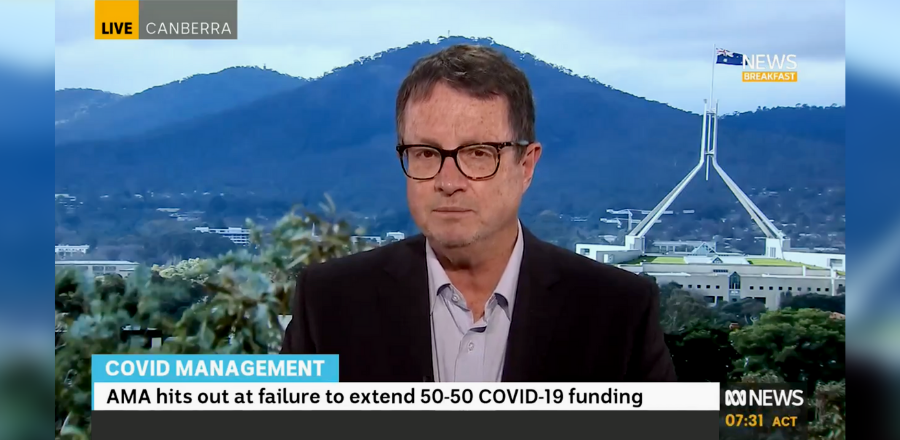Withdrawal of 50-50 COVID funding leaves hospitals without lifeline
The AMA has expressed its disappointment that the federal government has failed to extend temporary 50-50 COVID public hospital funding as hospitals are hit with the fourth wave of patient infections and short-staffed hospitals struggle to cope in the lead-up to Christmas.

The AMA has expressed its disappointment that the federal government has failed to extend temporary 50-50 COVID public hospital funding as hospitals are hit with the fourth wave of patient infections and short-staffed hospitals struggle to cope in the lead-up to Christmas.
The AMA says the federal government’s failure to extend a lifeline to public hospitals with 50-50 COVID-19 funding was “bewildering” and had left hospitals in the lurch facing rising cases during the Christmas holiday season.
AMA President Professor Steve Robson said the federal government’s decision not to extend the 50-50 COVID-19 public hospital funding agreement beyond 31 December was the “worst time to pull the financial rug out from under the states”.
He told the Australian newspaper that the nation’s public hospitals were under “enormous strain” and heading for “logjam” during Christmas-New Year with a fourth wave spike in COVID cases.
“It’s the typical story of large numbers of admissions and staff not going to work because they have got COVID,” Professor Robson said.
“The huge strain on public hospitals is beginning to build and as COVID numbers go up it will take some time to see the effects as hospitalisations tend to lag by a week or two and it takes a while for people to get sick enough.
“This means staff get infected and this takes everyone off rosters and this makes it hard to staff hospitals and emergency departments, so we get a large number of patients presenting and a lack of staff.
“It’s looking like it’s going to be a massive problem across the country over the Christmas period.”
Professor Robson said the AMA has advocated a long-term solution to hospital funding with a more equitable 50-50 funding share between the Commonwealth and states and territories and removal of the existing 6.5% cap on funding growth.
“While we wait for broader funding reform through a new 50-50 funding agreement, the COVID-19 funding has been so important to help our struggling public hospitals meet community demand,” he said.



